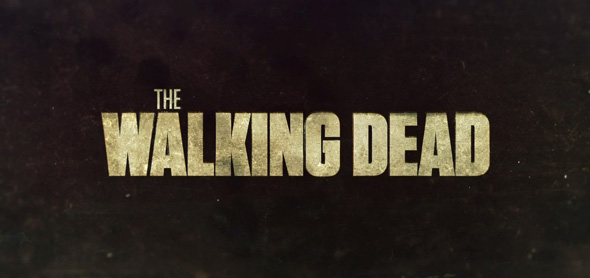
zombie theology: what ‘the walking dead’ says about our view of the other

i can’t decide if it’s a blessing or curse that i tend to see the world through a theological lens. either way, it leads to some unexpected (and often humorous to most people, i’m sure) observations about the nature of both god and people.
so it was on last night’s midseason finale of amc’s the walking dead. in a nutshell, for those who have never watched it, the show is about a group of people trying to save themselves in a world that has been overtaken with zombies (a.k.a. walkers). generally, i dislike the entire zombie genre, but this show is much more about the interpersonal dynamics of the group. which brings me to last night’s deeply theological episode.
this season—the show’s second—began with sophia (12ish years old??) being chased into the woods, away from the group, by some walkers. throughout this season, as they continued the daily searches for sophia, they set up camp at the farm of a family who has survived the outbreak. while at the farm, they discover that their barn is full of walkers that the family has captured and chosen to keep. the father, who is the head of the house at the farm, tells them that the reason they keep them is that some of them are family members, including his wife.
the father’s (and family’s) stance is that they’re still humans who simply have an illness. it’s just like, he says, a family member who contracts a terminal illness. in that case, you wouldn’t kill them, but rather have even more compassion for them. the traveling group, though, continue to see the walkers as non-human threats to their survival.
this tension comes to a head at the end of the episode, when one of the group decides it’s time to eradicate the farm of all the walkers. here’s the scene that follows:
**please note that this clip contains extreme violence. it’s hard to watch, particularly if you don’t like blood and gore.**
[videoplayer file=”http://beingryanbyrd.com/blogimg/video/walking_dead_theology.mp4″ width=”580″ height=”350″ autostart=”false” bufferlength=”3″ /]
if the lack of a broader context didn’t let you know, the girl who walks out at the end is sophia, the little girl who they’ve been searching for throughout this season (her mother, of course, is the woman who falls down crying).
what almost immediately struck me about this scene is the juxtaposition between the rage of the shooters as the walkers pour out of the barn as compared to their timidity when little sophia walks out. their brashness in the execution of the nameless walkers completely faded away when someone they knew and loved and could name walked out.
john franke has talked about the idea of localized theology, saying,
in one sense all theology is local in that all attempts at doing theology are both influenced by the particular thought forms and practices that shape the social context from which it emerges and bear the distinctive marks of that setting.
while franke isn’t nearly as specific as my interpretation of the scene above, i think his description applies. localized theology takes into account “social context”, whereas generalized theology often has a detached objectivity.
i’m regularly amazed by the theologies of those who demonize and tear down the other. whether it’s racism or vitriol towards gay people or brutal critiques about another’s theological camp or general judgment about a speck in another’s eye, i’m always interested to find out what would happen if someone they loved fell into one of those categories.
what if their brother was gay? what if their best friend was a calvinist? what if their mother renounced christianity as the exclusive path to god? what if [fill in the blank with a loved one] was [fill in the blank with your sin or prejudice of choice]?
when it’s someone we love or respect or care deeply about, suddenly our theological high horses come crashing down. our detached theologies are scrutinized when our local “social contexts” present an opposing reality.
when the nameless walkers come walking out of the building, we have no problem putting a bullet through their brains. but when the person we love, the person we know, the person we’ve invested ourselves into, comes walking out, suddenly our convictions are less convincing.
so, how do you see the other? who do you hold in judgment? who have you, from a distance, shot down? and who might you view differently if you actually knew them? who might you see past the speck in their eye to the see the person they are? to whom might you apply, as brian mclaren has put it, a more generous orthodoxy?
ok, gotta get back to some tv-watching. beavis and butt-head is coming on and i’m bound and determined to find some lesson about the eschaton or transubstantiation… 😉












